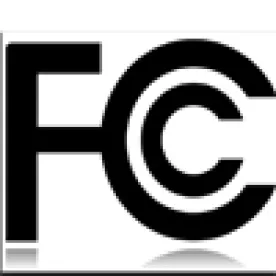On October 1, the U.S. Court of Appeals for the D.C. Circuit released a long awaited decision in Mozilla Corporation v. FCC that largely upheld most aspects of the Federal Communications Commission’s 2018 “Restoring Internet Freedom Order” While Federal Communications Commission (FCC) Chairman Pai quickly claimed victory, the nearly 200 page decision was in several areas quite critical of the FCC’s process, as well as the agency’s reasoning or the lack of discussion or support in the record for several of the Order’s determinations. Although these defects were not sufficient for the Court to reverse the Order on review, the Court nevertheless agreed with petitioners on several issues, discussed below, and remanded them to the agency for additional consideration.
While the issues remanded to the FCC for further consideration were not core to the FCC’s 2018 Order reclassifying broadband internet access services, both landline and mobile, to be “information services” from being “telecommunications services,” they nevertheless can be expected to spawn continued controversy about the appropriate scope of regulation over these services. The Court’s determinations likely also will reignite the debate about the need for federal legislation addressing the rules of the road for “Net Neutrality,” while simultaneously encouraging states to move ahead with state laws and regulations that could be viewed by the FCC as undermining its policies. After the FCC reversed course on its Net Neutrality rules in 2018, the State of California, for example, adopted legislation mirroring aspects of the FCC’s prior “no blocking, no throttling, no paid prioritization” regime generally known as Net Neutrality, that would apply to broadband Internet Service Providers (ISPs) operating in California. This legislation was placed on hold, pending the outcome of the appeal. Other states adopted or were considering adopting similar measures, even while awaiting the Court’s decision.
One issue that the Court agreed with petitioners about was that the FCC offered “at best, scattered and unreasoned observations” about why the FCC’s reclassification of broadband Internet as information service would not affect the respective rights and obligations of parties that were formerly telecommunications service providers. The statutory framework for pole attachments is directed at telecommunications providers, it does not reference information service providers. The FCC’s 2018 Order failed to explain how information service providers, that are no longer telecommunications service providers would continue to get the same access to poles. While some providers commingle telecommunications and broadband information services, the Court was at a loss as to why the agency was not arbitrary and capricious in failing to address the loss of “legal safeguards that its reversal of policy triggered.” The Court remanded this issue to the FCC.
The Court also faulted the FCC for not addressing head-on the concerns raised by several petitioners as to how the FCC could provide “Lifeline” universal service funding for broadband service if it was no longer classified as a telecommunications service, but rather as an information service. The Court determined that the agency failed to explain how its authority under Section 254(e) of the Communications Act that expressly limits support to eligible telecommunications carriers could be stretched to include non-carriers. Thus, the Court remanded this aspect of the FCC’s Order as well.
The most significant setback for the FCC’s deregulatory regime, at least in the near term, was the Court’s vacation of the FCC’s broad preemption of any state or local requirements “that are inconsistent” with the FCC’s deregulatory approach, which the Court labelled the FCC’s “Preemption Directive.” While the Court recognized that the FCC might have asserted conflict preemption as a legal theory to explain and to support its Preemption Directive, the Court plainly did not see the FCC’s action as limited to a traditional conflict preemption approach. Specifically, based upon the language of the FCC’s 2018 Order itself, the Preemption Directive was meant to have independent and far reaching effect, and this was challenged by petitioners as exceeding the FCC’s statutory authority.
The Court found that neither the FCC’s express authority, nor its ancillary authority conferred upon the agency the power to require that no state regulate what the FCC had as a policy matter chosen to deregulate. The FCC had relied upon an “impossibility exception” as the reason requiring the prohibition on states to regulate. However, the Court stated that this exception requires a predicate that there first be statutory authority to regulate, a circumstance that the Court found was not satisfied in this case. The Court likewise rejected the FCC’s assertion that preemption was necessary to effect a “federal policy of nonregulation for information services.” The Court was unmoved that a policy statement, without actual legal authority or responsibility provided to the FCC in its governing statute, could effectively allow the FCC to direct state preemption. As the Court noted, frustration of federal policy historically has not been a sufficient basis to preempt state laws.
Addressing the issue of conflict preemption, the Court concluded that this type of preemption only could apply in a situation where a “particular state law under the circumstances of the particular case stands as an obstacle to the accomplishment and execution of the full purposes and objectives of Congress…” As this is a fact intensive analysis, the Court could not begin to assess any particular case or categorically determine “that any and all forms of state regulation of intrastate broadband would inevitably conflict.” Thus, the FCC will have to assert conflict preemption when a particular state enacts laws or regulations, and not before.
The National Association of Regulatory Utility Commissioners (NARUC) issued its response to the Court’s decision, characterizing the FCC’s Restoring Internet Freedom Order as having eliminated the protections afforded to consumers by prior FCC Net Neutrality rules for broadband Internet access services. While NARUC stated that it was pleased that the Court vacated the portion of the FCC’s 2018 Order that preempted state laws that provide more robust Net Neutrality protections, NARUC also observed that it would support Supreme Court review of the service reclassification decisions the FCC made that effectively deregulated broadband Internet access services.
Most observers believe that the FCC will take its time to deal with the remand issues. Thus, assuming there is no successful appeal to the Supreme Court, the focus in the near term may be on state legislation, and on potentially renewed action on Capitol Hill to clarify what rights, obligations and regulations should apply to broadband Internet access. Finally, the question the scope of federal and state regulation survives, as does the interest in many quarters in resurrecting some aspects of the Net Neutrality rules thrown out by the FCC in 2018.




 />i
/>i

